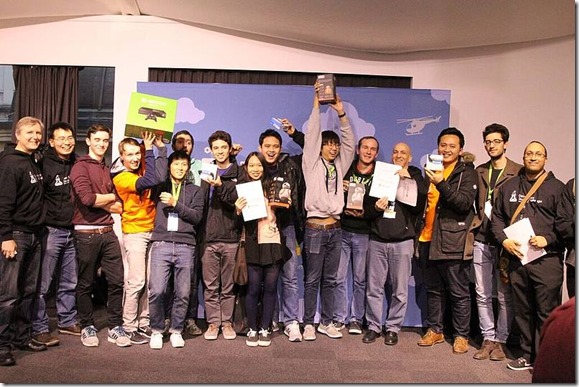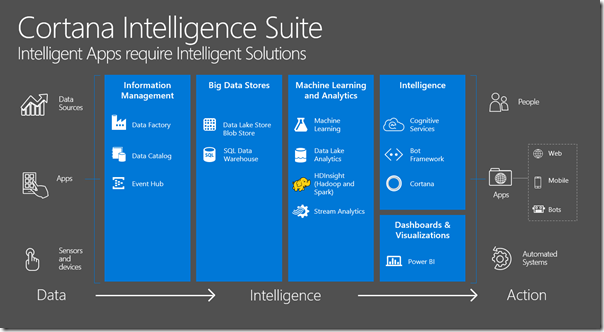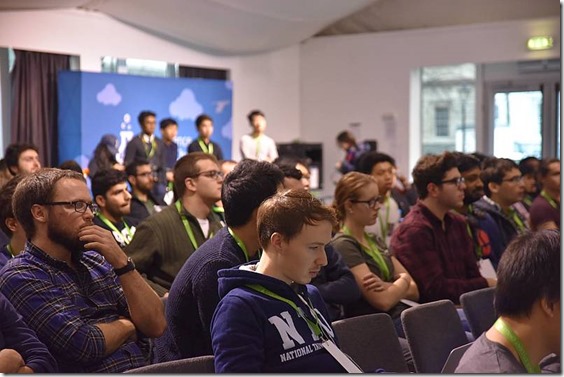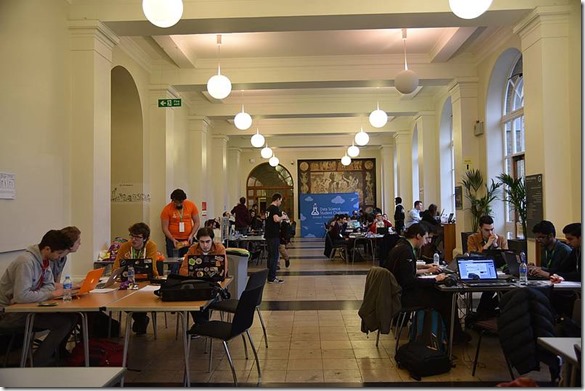UCL's Data Science Hackathon with Cortana Intelligence Suite
The impact of the data revolution can be felt with data scientists increasingly offering us pioneering ways to help change the world around us. From gaining insights on marketing data for a global banking firm to predicting agriculture yields for farmers or even forecasting air travel delays for passengers, data science offers ever more efficient ways to implement innovations. There is a world of opportunity in what data science can offer. However, we are witnessing a global shortage of capable data scientists, and organizations of all stripes are scrambling to fully harness the opportunities afforded by this revolution.
Patrick Wolfe, Director Alan Turing Institute London, “…Data sets are coming faster than we can even conceive them, so we need really smart people to come up with new algorithms, new ideas and new solutions on how to make sense of this data “
So, how do we go about addressing this shortfall of talented data scientists?
The answer is simple. You need to start from the grassroots. You need engaged students equipped with the right technological tools as well as the innovative drive to creatively embrace and promote the use of data science. In an industry where technology is driving exponential change, ensuring Universities have access to real world analytical and data science tools is the first step in empowering the next generation of data scientists. But as well as providing the latest analytical tools to Universities we also need engagement from students to drive creative possibilities. We need to educate more people with data science tools and expose them to types of problems that those tools can address and this is why we have created https://aka.ms/azureineducation and resources and labs at https://github.com/msftimagine and services from Cortana Intelligence Suite
UCL Computer Science Department hosted the UCL Data Science Student Challenge, powered by Microsoft Azure Machine Learning. Participants in the hackathons found Microsoft Azure Machine Learning to be powerful and easy to use, combining their own knowledge of R and Python with the built-in algorithms using ML Studio.
“I found that Azure ML was great because of how smooth the workflow got, and the ability to swap between languages,” Morgan Schmitz, data science student
Hyojong Justin Kim from UCL goes further, comparing Azure Machine Learning to MIT’s popular kids’ programming environment: “…for me it’s like Scratch for data science, it makes everything so much easier, and allows me to visualize everything. So I just have to drag-and-drop and boom it’s done!”
Through these events, Microsoft aim to ignite a passion for data science, machine learning, analytics and to help students learn and develop valuable technical skills.
"It was a fantastic experience working closely with Microsoft to organise UCL's first ever large hackathon. We're also very proud to be the first UK university to be given this opportunity and hope to strengthen our relationship with Microsoft in the future.", said Rohan Kopparapu.
The hackathon was focused around improving people's lives by applying Azure Machine Learning to a large number of data sets, ranging from open government data to healthcare data sets.
The winning teams were:
1st place - London Living: see [live demo] https://bit.ly/livelondon - Tobias Büschel - Jia Shern Tan - Jack Kleeman - Assaf Yossifoff
2nd place - Tawesome: - George Govedarica - Nancy Amelia - Ryan Tan Ti Ern - Justin Kim
3rd place - Sleeping on the Job: see [GitHub repository] https://github.com/agusarridho/dssc_ucl_20160207 - Agus Nur Hidayat - Andrew Dumit - Hermawan Adi Budyanto - Federico Fontan



